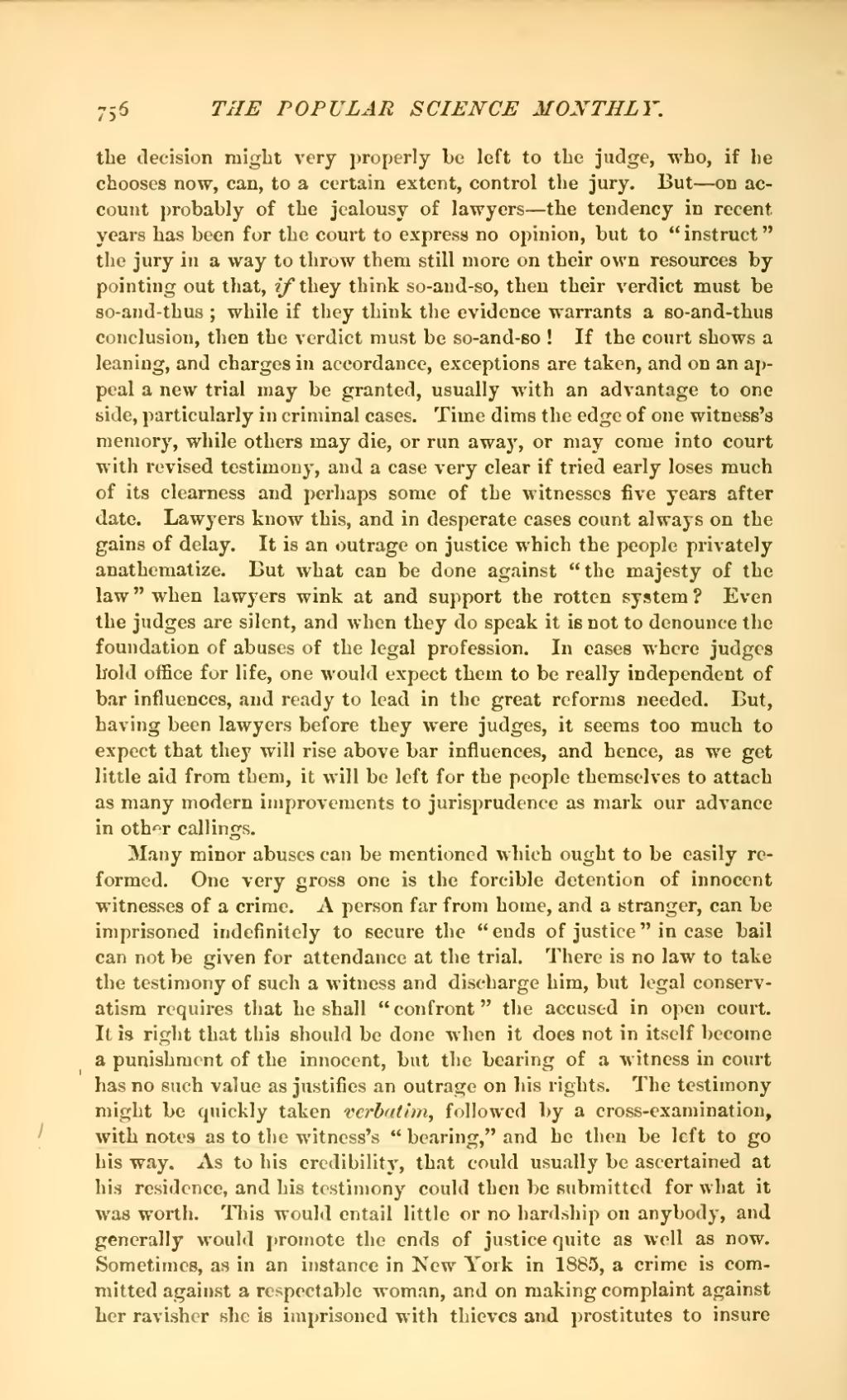the decision might very properly be left to the judge, who, if he chooses now, can, to a certain extent, control the jury. But—on account probably of the jealousy of lawyers—the tendency in recent years has been for the court to express no opinion, but to "instruct" the jury in a way to throw them still more on their own resources by pointing out that, if they think so-and-so, then their verdict must be so-and-thus; while if they think the evidence warrants a so-and-thus conclusion, then the verdict must be so-and-so! If the court shows a leaning, and charges in accordance, exceptions are taken, and on an appeal a new trial may be granted, usually with an advantage to one side particularly in criminal cases. Time dims the edge of one witness's memory, while others may die, or run away, or may come into court with revised testimony, and a case very clear if tried early loses much of its clearness and perhaps some of the witnesses five years after date. Lawyers know this, and in desperate cases count always on the gains of delay. It is an outrage on justice which the people privately anathematize. But what can be done against "the majesty of the law" when lawyers wink at and support the rotten system? Even the judges are silent, and when they do speak it is not to denounce the foundation of abuses of the legal profession. In cases where judges hold office for life, one would expect them to be really independent of bar influences, and ready to lead in the great reforms needed. But, having been lawyers before they were judges, it seems too much to expect that they will rise above bar influences, and hence, as we get little aid from them, it will be left for the people themselves to attach as many modern improvements to jurisprudence as mark our advance in other callings.
Many minor abuses can be mentioned which ought to be easily reformed. One very gross one is the forcible detention of innocent witnesses of a crime. A person far from home, and a stranger, can be imprisoned indefinitely to secure the "ends of justice" in case bail can not be given for attendance at the trial. There is no law to take the testimony of such a witness and discharge him, but legal conservatism requires that he shall "confront" the accused in open court. It is right that this should be done when it does not in itself become a punishment of the innocent, but the bearing of a witness in court has no such value as justifies an outrage on his rights. The testimony might be quickly taken verbatim, followed by a cross-examination, with notes as to the witness's "bearing," and he then be left to go his way. As to his credibility, that could usually be ascertained at his residence, and his testimony could then be submitted for what it was worth. This would entail little or no hardship on anybody, and generally would promote the ends of justice quite as well as now. Sometimes, as in an instance in New York in 1885, a crime is committed against a respectable woman, and on making complaint against her ravisher she is imprisoned with thieves and prostitutes to insure
